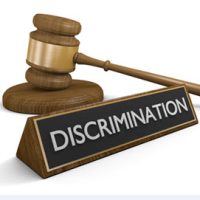What Does It Mean to File a Charge of Discrimination and Who Can File One?

If you believe you have been discriminated or retaliated against at your Florida workplace due to your race, religion, national origin, gender, genetic information, disability, age, or sexual orientation, or even if you are an employer who is facing a discrimination charge, you are likely to have a lot of questions about how the law defines discrimination charges. For example, what does it mean to file a charge of discrimination? Who can file a charge of discrimination? Are there different types of discrimination charges? Do I need to file a separate charge with the Equal Employment Opportunities Commission for federal claims and one with the Florida Commission on Human Relations for state claims?
It is important for employers and employees alike to understand how a discrimination charge works in Florida, as well as to learn more about who can be eligible for filing a claim.
What Does Filing a Charge of Discrimination Mean?
What does it mean to file a charge of discrimination? According to the U.S. Equal Employment Opportunity Commission (EEOC), when an employee believes that she or he has been discriminated against because of race, color, religion, sex, national origin, age, disability, or genetic information, that employee may be able to file what is known as a “Charge of Discrimination.” It is important to note that sex discrimination includes pregnancy, gender identity, and sexual orientation. Under federal law, age discrimination is applicable to a Charge of Discrimination if the employee is aged 40 or older and under Florida state law, age discrimination can be at any age (or even reverse discrimination). Also, marital status id a protected trait under state law.
If you are filing a claim under one of the laws that prohibit workplace discrimination, you will first need to file a Charge of Discrimination. Filing a Charge of Discrimination is an important step – even if you are not sure whether you will want to file a lawsuit. It is important because it is a prerequisite to ever filing a lawsuit, or in other words, if you do not file a Charge of Discrimination, you will not be able to file a lawsuit later on for the discriminatory or retaliatory actions. Indeed, all of the federal laws that are enforced by the EEOC (except for the Equal Pay Act) and the state laws under the Florida Civil Rights Act require an aggrieved employee to file a Charge of Discrimination with the EEOC or FCHR prior to filing a lawsuit against his or her employer.
As the EEOC clarifies, a Charge of Discrimination is different from filing an employment discrimination lawsuit or an internal complaint with Human Resources.
Most importantly, a Charge of Discrimination has time limits, too. Anyone who files a Charge of Discrimination must do so within 300 calendar days from the date on which the alleged discrimination or retaliation occurred to provide for coverage under federal law. State law allows you to file your charge within 365 calendar days from which the discrimination or retaliation occurred.. The time period begins to run from the first adverse action (termination, suspension, reduction in pay, etc) or when the employee learned about the discriminatory/retaliatory act (such as in situations when you learn a coworker in the same position of the opposite sex is getting paid more). However, if there are multiple events in the series of discrimination or retaliation, you may (and should) still file your charge even if some of the events (but not all) fall outside the 300 or 365 day time period, as you will at least have the opportunity to include those in your claim. Under very special circumstances, the time may be tolled to file a charge, but you should never rely on tolling – file your charge timely to ensure that it will not be dismissed.
You should always discuss your case with a Florida employment discrimination lawyer to ensure that you are filing a Charge of Discrimination on time and including the correct information.
Who is Eligible to File a Charge of Discrimination?
You might be wondering whether anyone besides an aggrieved employee can file a Charge of Discrimination with the EEOC. Any employee who has been unlawfully discriminated against may be able to file a Charge of Discrimination with the EEOC and/or the FCHR. In addition, the EEOC specifies that an “individual, organization, or agency may file a charge on behalf of another person in order to protect the aggrieved person’s identity.” For example, an individual who complained about discrimination against a coworker and then who is retaliated against (terminated, suspended, etc) after making the complaint may be eligible to file a charge. Further, you do not have to be an employee to file a charge. As the Florida Commission on Human Relations (FCHR) explains, an employee or job applicant in the state can file a discrimination complaint as well. So, for example, if you learn that you did not receive a job after applying for discriminatory reasons, you may be eligible to file a charge as an applicant.
Pursuant to a Workshare Agreement between the FCHR and EEOC, a charge filed with either agency is deemed dually filed with the other, as long as the charge is filed within the time limits. For instance, if you are beyond the 300 day time period to file with the EEOC, you should consider proceed with filing your charge with the FCHR directly (rather than filing with EEOC and relying on the Workshare Agreement), because your claim would be outside the EEOC’s 300 day time period, anyway.
If you have questions about how and where to begin with a discrimination charge, you should discuss those questions with a Florida employment discrimination/EEOC attorney.
Resources:
eeoc.gov/employees/charge.cfm
fchr.state.fl.us/complaints__1/employment

